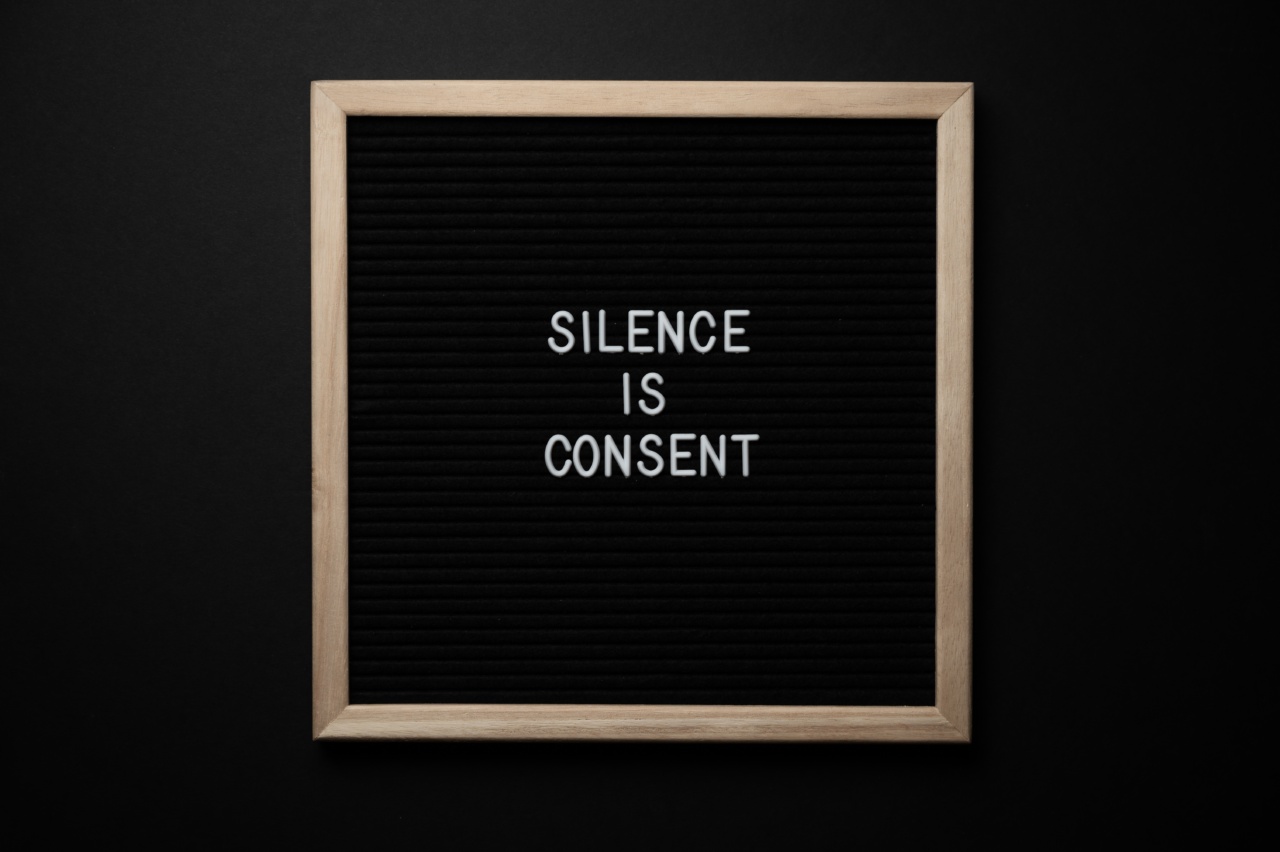Have you ever felt like you have a voice within you that remains unheard? Sometimes, this silent voice can reflect our innermost thoughts, fears, or desires, and yet, for various reasons, we find it challenging to express ourselves openly.
Coping with a silent voice can be a difficult journey, but it is important to remember that there are strategies and support systems that can help us overcome these challenges and find our voice. In this article, we will discuss effective ways to cope with a silent voice, communicate assertively, seek support, and foster self-empowerment.
Understanding the Silent Voice
Before we delve into coping strategies, it is essential to understand the various factors that contribute to having a silent voice. Several reasons can cause individuals to struggle with expressing themselves openly:.
1. Low Self-Esteem and Confidence
One of the primary reasons for a silent voice is low self-esteem and confidence. When you do not believe in yourself or fear judgment from others, you may hesitate to share your thoughts or feelings openly.
Building self-esteem and confidence is a crucial step towards finding and expressing your voice.
2. Fear of Rejection
Many individuals with a silent voice fear rejection. It can be daunting to put oneself out there and risk being misunderstood or rejected by others.
Overcoming the fear of rejection is vital if you want to communicate effectively and openly express your thoughts.
3. Past Trauma
Experiencing past trauma can significantly impact our ability to communicate our thoughts or feelings. Traumatic events can silence us, as we may fear confronting painful memories or being judged due to them.
Seeking professional support to address past trauma is crucial in finding healing and reclaiming our voice.
4. Lack of Effective Communication Skills
Some individuals may struggle to find their voice due to a lack of effective communication skills. They may find it challenging to articulate their thoughts or emotions, leading to frustration and a perpetuation of silence.
Learning and honing communication skills can help break this pattern.
5. Cultural or Social Expectations
Cultural or social expectations can also contribute to having a silent voice. Certain societies or cultures may have norms that discourage individuals, especially marginalized groups, from expressing their thoughts or opinions openly.
Recognizing and challenging these expectations is crucial for personal growth and self-expression.
Coping Strategies for a Silent Voice
Now that we understand some of the factors that contribute to a silent voice, let’s explore effective coping strategies to overcome these challenges:.
1. Self-Reflection
Engage in regular self-reflection to understand the reasons behind your silent voice. Explore your beliefs, fears, and experiences that may be holding you back from expressing yourself openly.
Journaling or seeking therapy can aid in this process of self-discovery.
2. Building Self-Esteem and Confidence
Work on building self-esteem and confidence. Practice self-care and engage in activities that boost your self-worth. Surround yourself with supportive and uplifting individuals who appreciate and encourage your uniqueness.
3. Challenging Negative Thoughts
Identify and challenge negative thoughts that contribute to your silent voice. Replace self-defeating beliefs with positive and empowering affirmations.
Practice reframing your inner dialogue and focus on the strengths and qualities that make you valuable and worthy of being heard.
4. Seeking Professional Support
Consider seeking professional support, such as therapy or counseling, to address any underlying trauma or emotional challenges that may be hindering your ability to express yourself openly.
A trained professional can guide you towards healing and provide useful communication tools.
5. Developing Communication Skills
Invest time and effort in developing effective communication skills. Read books or attend workshops on assertiveness, active listening, and conflict resolution.
Effective communication techniques can help you express your thoughts and feelings confidently.
6. Finding Safe Spaces
Identify safe spaces where you can freely express yourself without fear of judgment or rejection. This can be a support group, an online community, or a trusted friend or family member.
Feeling heard and supported in such spaces can empower you to find your voice more easily.
7. Practicing Assertiveness
Practice assertiveness in your daily life. Start by expressing your opinions or preferences in low-stakes situations and gradually build up to more significant conversations.
Finding a balance between passive and aggressive communication styles is essential for effective self-expression.
8. Setting Boundaries
Establish clear boundaries to protect your self-expression. Communicate your needs and expectations to others, and learn to say no when necessary. Setting boundaries can help you feel more in control and reduce anxiety about expressing yourself.
9. Learning from Role Models
Observe and learn from individuals who are confident in expressing themselves. Identify role models who embody the qualities you aspire to when it comes to self-expression.
Study their communication styles and take inspiration from their ability to find their voice.
10. Embracing Vulnerability
Lastly, embrace vulnerability. Understand that opening up and sharing your thoughts or feelings requires courage. But it is through vulnerability that authentic connections are formed and personal growth is achieved.
Allow yourself to be vulnerable and authentic in your communications.
Conclusion
Having a silent voice can be a challenging experience, but with the right strategies and support, it is possible to overcome these obstacles.
By working on your self-esteem, communication skills, and seeking professional guidance when needed, you can empower yourself to find and express your true voice confidently. Remember, your voice matters, and it deserves to be heard.































